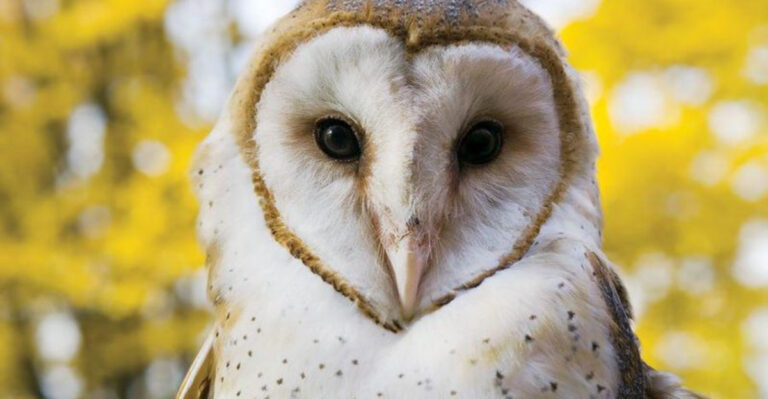21 Key Differences Between Rottweilers And Dobermans As Guard Dogs
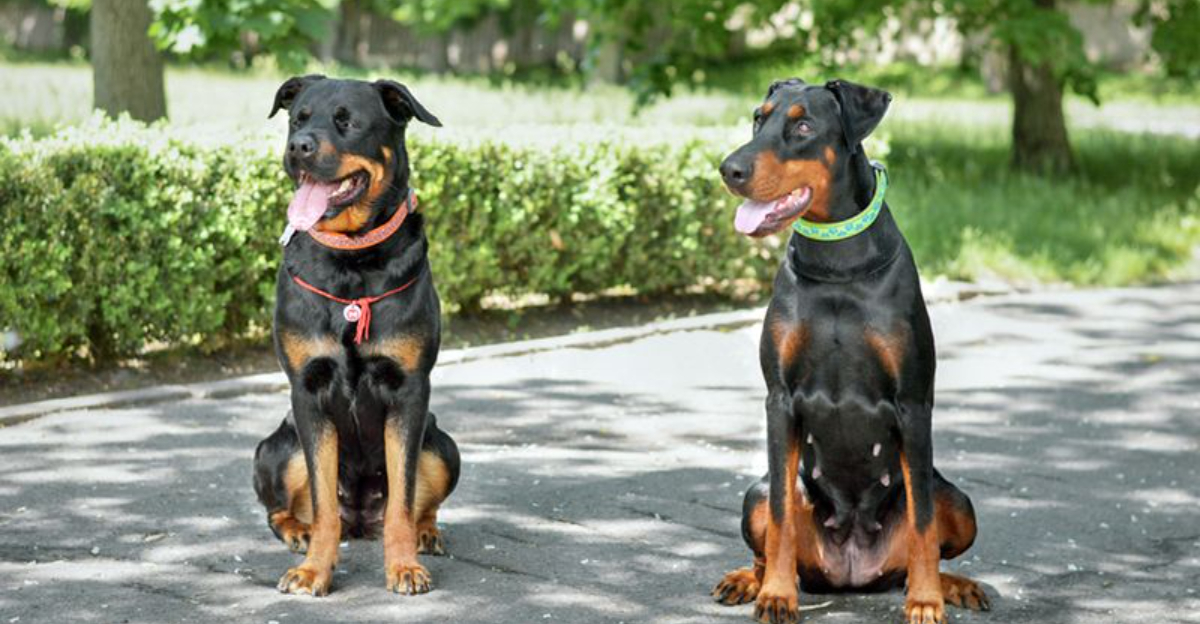
Imagine walking into a home and feeling instantly secure, not because of high-tech alarms, but thanks to four-legged guardians.
Both Rottweilers and Dobermans are renowned for their guarding prowess, yet they offer distinct experiences. Let’s explore the unique characteristics of these canine protectors through 21 fascinating insights that highlight what makes each breed exceptional in its own way.
1. Physical Appearance

Ever noticed the difference in their looks? Rottweilers are burly with a stocky frame, while Dobermans boast a sleek, muscular build. These physical traits play a role in their guarding style. While one stands like a solid fortress, the other moves with the agility of a swift scout. How cool is that?
2. Temperament

You’d think all guard dogs are the same, but not really! Rottweilers carry a calm confidence, making them the quiet guardians. On the other hand, Dobermans are more high-strung, always on the alert. These temperamental differences can influence which breed might suit your lifestyle better.
3. Training Ease

Ever tried teaching a trick? You’ll find Dobermans often catch on quicker, thanks to their eagerness to work. Rottweilers, while intelligent, might test your patience by being a tad stubborn. This difference in training ease can be a deciding factor for new dog owners.
4. Energy Levels
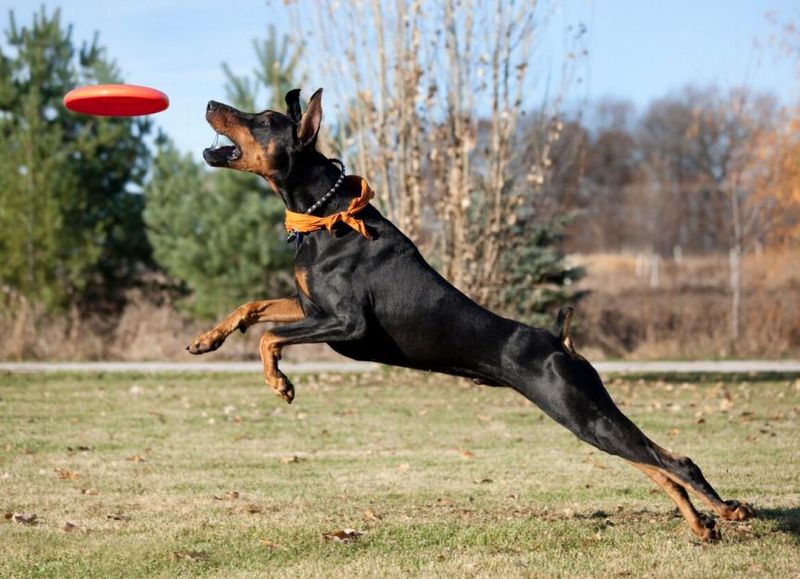
If you’re into jogging, guess which one might be your buddy? Dobermans are full of energy, ready to join any active adventure. Rottweilers? They might prefer a leisurely stroll instead. Understanding their energy needs ensures a happier pet-owner relationship.
5. Protectiveness

Everyone loves a good protector, right? While both breeds are protective, Rottweilers exude a natural guarding instinct that feels like having a personal bodyguard. Dobermans, with their sharp senses, excel in alerting you to potential threats.
6. Barking Tendency

Noise alert! Dobermans might vocalize their warnings more frequently, making them excellent alarms. Rottweilers, however, choose to bark only when truly necessary, saving their voice for genuine threats. Which style suits your home environment better?
7. Intelligence

Ever been outsmarted by a pet? Dobermans and Rottweilers are both brainy, but Dobermans often get a nod for their quick problem-solving skills. Rottweilers use their smarts in a more methodical way, assessing situations carefully before acting.
8. Social Behavior

Love social gatherings? Rottweilers tend to be more social, enjoying the company of other pets and people. Meanwhile, Dobermans can be a bit reserved, preferring familiar faces over strangers. This trait can influence your choice based on social lifestyle needs.
9. Lifespan

Here’s a thought: Dobermans tend to have a slightly shorter lifespan compared to Rottweilers. While both deserve every moment of companionship, this difference might affect your long-term planning when choosing a pet.
10. Size
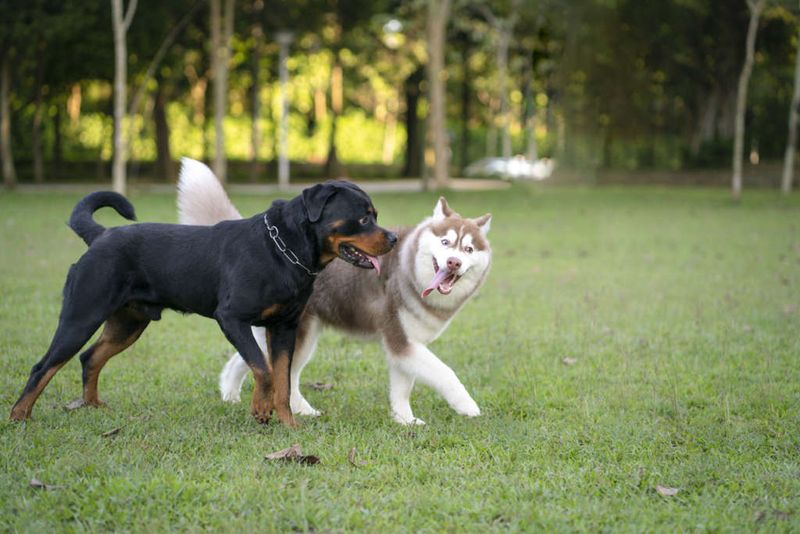
Ever heard the phrase “size matters”? Well, in guard dogs, it does! Rottweilers are generally larger, with a more robust build. Dobermans, though leaner, possess an imposing height that can deter intruders effectively.
11. Coat And Grooming

Brush time! Rottweilers come with a dense double coat that needs regular grooming. Dobermans, with their short, sleek coats, require less maintenance. Knowing their grooming needs can save you time and effort in keeping them neat and tidy.
12. Historical Roles

History class! Rottweilers traditionally herded cattle, using their strength and resilience. Dobermans, bred for protection, often served in police and military roles. These historical roles shaped their guarding instincts and abilities.
13. Health Considerations

Let’s talk health. Dobermans may face specific heart issues like cardiomyopathy, whereas Rottweilers are prone to hip dysplasia. Understanding these health considerations can help in managing their well-being and ensuring a long, healthy life.
14. Adaptability

City dweller or country lover? Rottweilers adapt well to various living environments, including apartments, given enough exercise. Dobermans, with their higher energy levels, thrive in homes with space to roam. This adaptability can impact your living arrangements.
15. Aggression Levels

Time for a myth-busting moment! Despite their fierce reputation, Rottweilers are known for their gentle nature, especially with family. Dobermans, while fierce protectors, require early socialization to manage their territorial instincts. It’s all about training and environment.
16. Family Compatibility
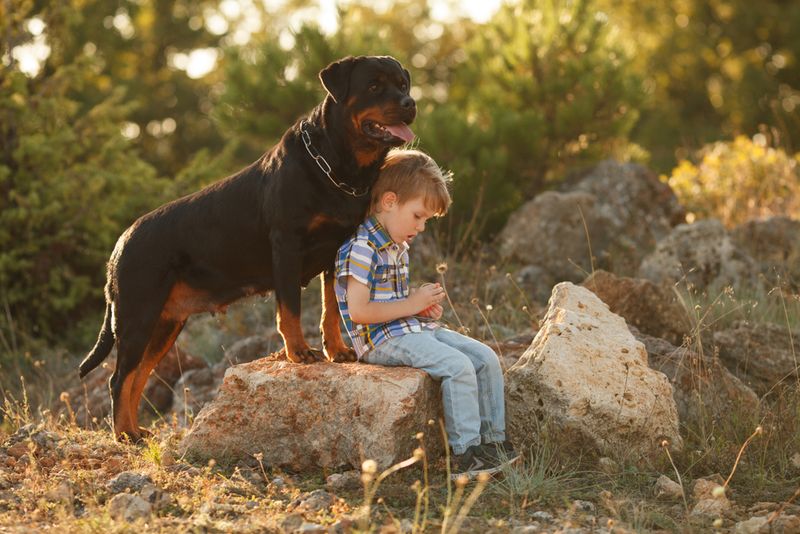
Family first! Rottweilers are known for their affection towards family members, making them great family pets. Dobermans, loyal to a fault, often form strong bonds with one person. Consider who you’d like your furry friend to befriend the most.
17. Exercise Needs

Feeling energetic? Dobermans require more exercise to keep their active minds and bodies in check. Rottweilers, while also active, are content with moderate daily walks. Balancing their exercise needs with your lifestyle is key to a happy pet.
18. Cost Of Ownership

Wallet check! Owning a Doberman can be more expensive due to their health care and grooming needs. Rottweilers, though not cheap, may have fewer health-related expenses. It’s wise to consider the financial aspect of pet ownership before making a decision.
19. Loyalty
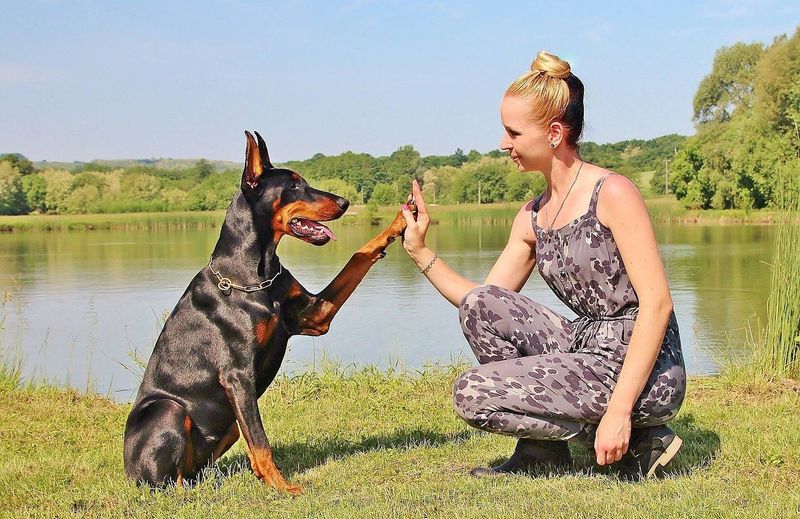
Heartwarming loyalty! Both breeds are fiercely loyal, but Dobermans are often described as ‘velcro dogs’ for their constant desire to be near their humans. Rottweilers are equally devoted but exhibit a more independent streak. Which type of loyalty would you prefer?
20. Noise Sensitivity

Got a noisy household? Dobermans tend to be more sensitive to sounds, responding quickly to unusual noises. Rottweilers, with their calm demeanor, might not be as reactive. Consider how their noise sensitivity aligns with your home environment.
21. Weather Tolerance

Weather check! Rottweilers, with their thick coats, handle colder climates better. Dobermans, with less natural insulation, prefer milder conditions. Understanding their weather preferences will keep them comfortable and healthy year-round.




